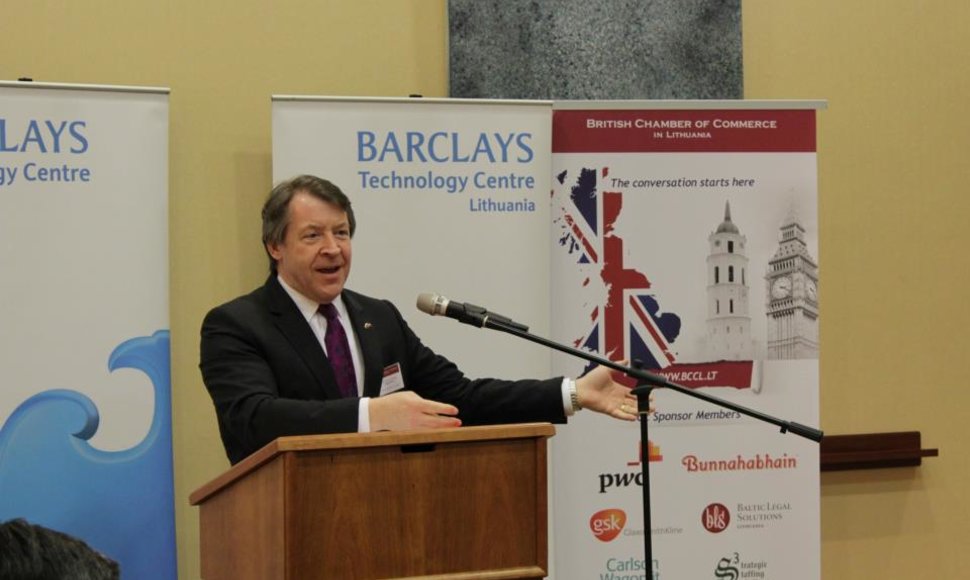In an interview to BNS, Lord Mayor of the City of London Roger Gifford said that the instrument proposed by the Lithuanian European Commissioner Algirdas Šemeta would affect more than the 11 EU countries that want to introduce the tax but also their trade partners.
"We in the City of London want markets to be open, we want them to be relatively free of restrictions as much as it is possible. And the FTT goes exactly against that without necessarily raising much income," Gifford said in Vilnius on Wednesday.
"We don't think the FTT is the correct form of tax or the right kind of tax to bring in. First of all, it's a tax on trading, it is not a tax on income. So its likely effect is to reduce trading between counterparts rather than taxing income," said the banker.
Mark Boleat, chairman of the Policy and Resources Committee of the City of London, emphasized issues on the effects of the tax upon the countries that don't introduce it have already been raised within the EU. "We think it's highly unlikely the tax is gonna be introduced in its current form because the more people look at it, the more research is done, huge problems come up with it all the time. The notion that it's a nice painless tax that would have no effect on people or anything else but just raise revenue which was the arguments on some people initially – this has been shown to be completely incorrect," Boleat said.
In February, introduction of the financial transaction tax, proposed by Šemeta, was supported by 11 of the EU's 27 members, including Germany and France. Lithuania's Prime Minister Algirdas Butkevičius said shortly after the general elections in late 2012 that the Baltic state would also have the tax, but later changed his opinion.
Last Friday, Great Britain announced London plans to file an appeal against the tax to the European Court of Justice, saying the tax would have an unfair effect upon the countries that do not want it. "If it something which 11 countries want to tax their own people and do their own thing, that's fine, but this tax would go well beyond it," Boleat said.
Supporters of the financial transaction tax maintain it is a good way to make the financial sector repay the debt for the support provided to the sector during the crisis. With the tax in place, transactions involving shares and bonds would be subject to 0.1 percent tax, while transactions with financial derivatives would be subject to 0.01 percent tax.
The commission says the tax would help generate 30-35 billion euros in annual revenues.












